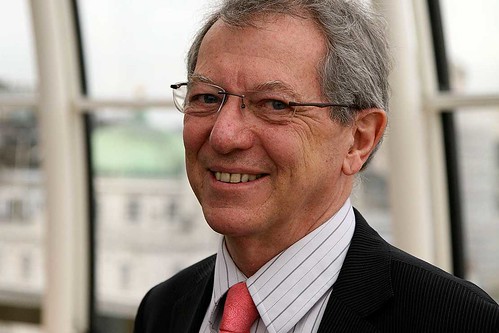23rd January 2014 Lima, Peru
Lima as the Key Stage Towards a Global Agreement
- By Sir David King, Foreign Secretary’s Special Representative for Climate Change

If we all, together, continue to emit greenhouse gases at the present rate, 1.8% per annum, by 2040 we will have burnt up the entire planet’s budget for carbon. Exceeding that budget means that we face a global warming temperature rise of more than 2°C, with extraordinarily challenging consequences for mankind. That is the stark message from the latest scientific report of the intergovernmental panel on climate change.
The implications for the international negotiations that will take place in Lima in December this year are equally stark. This will be the key penultimate meeting before the UNFCCC meeting the following year in Paris were agreement between the nations of the world will have to be reached. If we do get the appropriate good result at that meeting, what we would need to do by 2020 and beyond is to decrease our emissions by 3.2% year-on-year to stay within that critical carbon budget. By mid century we will need to have implemented an energy programme in each country of the world which does not use fossil fuels, and we will need to have put into reverse the deforestation that has taken place over the past few decades. In this context, it is very important that Peru has decided a zero net deforestation target and an ambitious energy target for renewable energy by 2020.
Several countries in Europe, in particular the UK and Germany, have implemented policies which are rapidly opening the way towards low-cost clean energy sources. Taxpayers in our countries subsidised the early development of both solar and wind power technologies, which means that prices have come down to such an extent that for most parts of the world these technologies can be implemented even today at a lower cost than energy production by coal or gas fired power stations. The carbon cap and trade process introduced in the UK in 2004, and across the EU in 2005, is now being implemented in many parts of the world, again as a means of encouraging the switch to clean non-fossil fuel energy sources. Energy efficiency gains are also being implemented across many sectors. Off-grid villages across Africa, India and South America can all be provided with cheaper electricity through solar and wind power, coupled with local mini grids, than using large-scale energy generation by classical means.
We the global community cannot afford to jeopardise our ambitions for 2015 on the basis of process-driven squabbles. We simply cannot afford to. The reason I have come back to work in the British Foreign Office is because I have a personal commitment to seeing that something is produced in 2015 that actually matches up to the global challenge. The technologies are there. The economics points in the right direction. What we need to demonstrate is the political will to succeed.